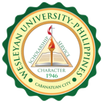 The Integrated Bar of the Philippines (IBP) Central Luzon Region conducted the third leg of the Code of Professional Responsibility and Accountability (CPRA) Rollout and Unified Legal Assistance Service (ULAS) Updates on October 24, 2025, at the Mansion Garden Hotel in Subic Bay Freeport Zone, Zambales.
The Integrated Bar of the Philippines (IBP) Central Luzon Region conducted the third leg of the Code of Professional Responsibility and Accountability (CPRA) Rollout and Unified Legal Assistance Service (ULAS) Updates on October 24, 2025, at the Mansion Garden Hotel in Subic Bay Freeport Zone, Zambales.
The event gathered legal practitioners, educators, and students from across Central Luzon to discuss reforms under the new CPRA, which modernizes ethical standards for members of the Bar, and to strengthen coordination for the implementation of the ULAS framework, designed to expand access to legal aid services nationwide.
Wesleyan University-Philippines (WUP), through its John Wesley School of Law and Governance (JWSLG), sent a delegation led by Associate Dean Darren J. Gonzales, LLM, to represent the institution in the regional rollout. The group included law professors Atty. Reena Clarisse A. Carlos, Atty. Rossini Ann R. Torres, Atty. Joseph Conrad E. Hilario, and Atty. Ismael T. Fisco Jr. They joined fellow JWSLG faculty members, Atty. Maria Carmela C. Wenceslao-Mendoza, president of the IBP Nueva Ecija Chapter, and Atty. Dick F. Fernandez, IBP Central Luzon governor, both of whom played key roles in organizing and facilitating the event.
Law students under the Clinical Legal Education Program (CLEP) also joined the rollout, gaining first-hand insight into the Supreme Court’s continuing reforms on legal ethics and professional responsibility. Their participation underscored the program’s goal of preparing future lawyers not only in legal competence but also in ethical awareness and public service.
IBP and Supreme Court resource speakers led comprehensive discussions on the CPRA’s provisions, emphasizing integrity, accountability, and the duty of lawyers as officers of the court. The ULAS component, meanwhile, highlighted collaboration between the IBP and law schools to streamline and strengthen the provision of free legal services to the underprivileged.
Through its participation, WUP reaffirmed its commitment to advancing ethical and socially responsive legal education, while the JWSLG would continue to align its academic programs with national reforms promoting integrity and public service within the legal profession.
Article and photos courtesy of Darren J. Gonzales

